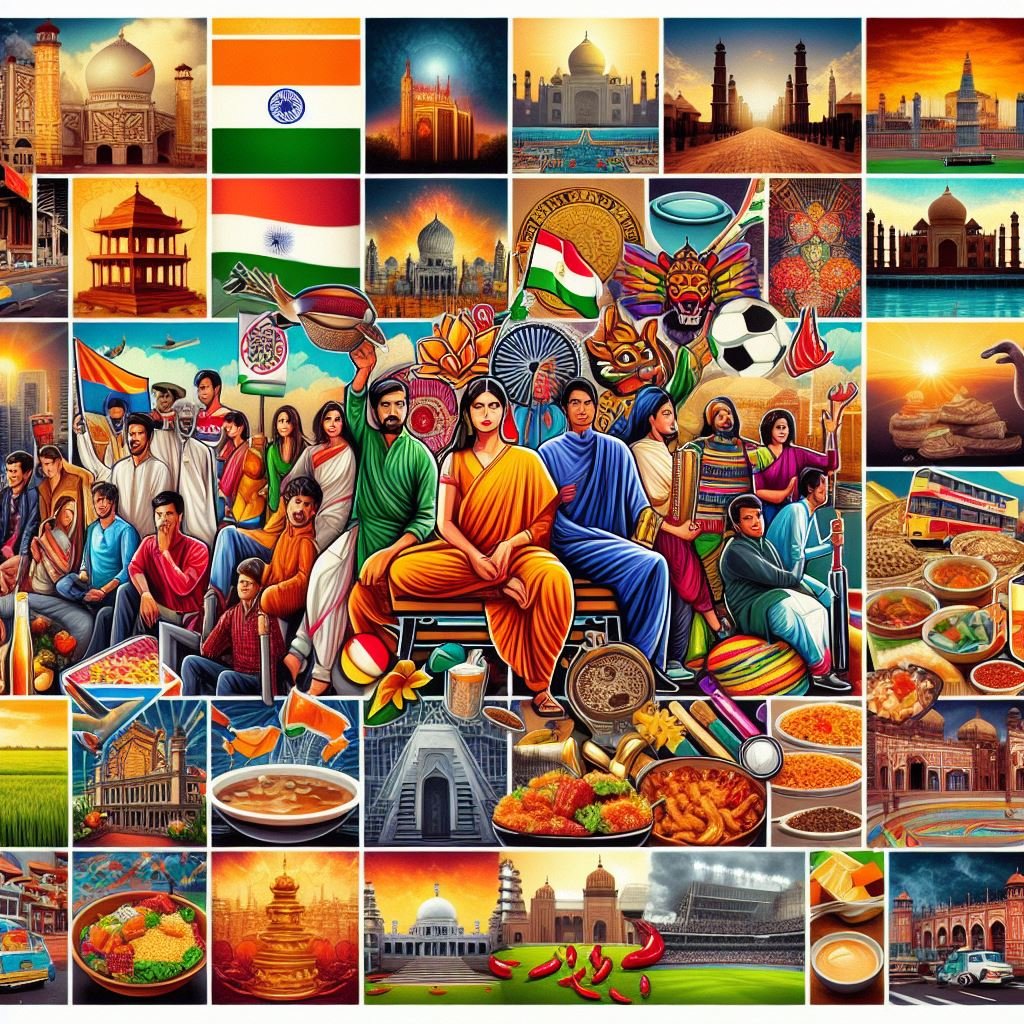Is the digital landscape truly a reflection of our diverse world, or is it merely a curated echo chamber? The rise of "My Desi Net" and related platforms is a testament to the enduring power of community and the evolving nature of online spaces, offering a unique lens through which to examine identity, culture, and the complexities of the digital age.
The term "My Desi Net" encapsulates a broad spectrum of online activities and communities centered around the South Asian diaspora. This includes everything from entertainment platforms offering Bollywood movies and TV shows to forums and social media groups where individuals connect and share their experiences. The core of this phenomenon is the "desi" identity itself, a term that encompasses a rich tapestry of cultures, languages, and traditions originating from the Indian subcontinent. This shared heritage provides a foundation for connection and a sense of belonging for people living both within and outside of South Asia. The internet, with its global reach, has become a powerful tool for fostering this sense of community, allowing individuals to find and connect with others who share their background and experiences. However, the online world isn't without its complexities. The rise of platforms that focus on specific niches, such as those featuring "desi mms" content, raises important questions about content moderation, privacy, and the exploitation of individuals. The proliferation of such content, often featuring amateur videos, highlights the need for increased awareness and critical engagement with the digital spaces we inhabit. The emphasis on explicit content, especially when it comes to videos of "desi bhabhi" and "desi gf" scenarios, brings up concerns about the objectification of women and the potential for the normalization of harmful stereotypes. It is crucial to approach these platforms with a critical eye, considering the ethical implications and potential impact on those involved.
To understand this complex landscape better, let's explore some key aspects:
| Aspect | Details |
|---|---|
| Defining "Desi" | The term "desi" broadly refers to individuals of South Asian descent, encompassing those with Indian, Pakistani, Bangladeshi, Nepali, Sri Lankan, and other related heritages. It's a term of identity that transcends national boundaries and often signifies a shared cultural experience. |
| "My Desi Net" and its Offerings | This umbrella term covers a range of platforms and communities. They can include streaming services offering Bollywood movies, TV shows, and regional content; social media groups for cultural exchange and networking; and, unfortunately, platforms hosting explicit content. |
| Social Media Influence | Social media plays a massive role in shaping the narrative. It serves as a space for Desi individuals to share their experiences, celebrate their culture, and engage in public discussions. However, it also brings the risk of misinformation, cyberbullying, and the spread of harmful stereotypes. |
| Business and Networking | Online platforms are important for Desi entrepreneurs and professionals to connect, share resources, and create business opportunities. They offer ways to promote Desi-owned businesses and find employment. |
| Challenges Faced | The Desi community faces several challenges in the digital world. These challenges include privacy concerns, the proliferation of misinformation, navigating cultural sensitivities, and combating online harassment and discrimination. |
| The Future | The digital world continues to evolve, and the future of "My Desi Net" is linked to the community's capacity to address present-day challenges, promote inclusivity, and create safe, empowering online environments that reflect their values. |
Reference Website: Wikipedia - South Asian Diaspora
The availability of content, including "desi mms videos," raises serious questions about the ethics of content creation and dissemination. Sites that feature "desi bhabhi showing boobs" or "desi gf riding bf" scenarios are particularly problematic. While some may see these videos as a form of entertainment, they often cross the line into exploitation and objectification. Moreover, the lack of proper consent and the potential for non-consensual distribution are real concerns. It is very important to consider the impact of this content on individuals and communities, especially in regions where cultural norms and values differ. The line between artistic expression and exploitation becomes blurred, especially when it comes to content that may be produced without the informed consent of the individuals involved. The spread of such content also can contribute to the normalization of harmful sexual behaviors and the reinforcement of gender stereotypes.
Platforms like "Mydesi.net" and others offering similar content often face scrutiny over content moderation practices. The challenge is how to balance freedom of expression with the need to protect individuals from harm. It also involves deciding on what constitutes exploitative content and how to prevent its spread. There needs to be a better balance between what can be said and done online and the need to protect individuals from being exploited. There must be a constant reassessment of the impact of content, to ensure ethical practices.
The commercial aspects of the "desi" content market are also worth examining. This includes platforms that offer streaming services, those that provide access to adult content, and those that cater to the Indian diaspora. It is critical to examine the business models and ethical frameworks that drive these ventures. What are the sources of revenue? How are content creators compensated? Are there safeguards in place to protect creators and viewers from harm? The financial incentives that drive these platforms can sometimes overshadow ethical concerns. Transparency and accountability are essential for building trust and creating sustainable business practices.
The entertainment offerings are a reflection of the culture, including Bollywood movies, TV shows, and regional content. These platforms serve the diverse needs of the Indian diaspora, providing an opportunity to connect with cultural heritage. This is a way to celebrate heritage and identity, to connect with shared experiences. However, even within mainstream entertainment, there is a need for critical engagement. The need to assess the messages and the narratives that are presented, challenging stereotypes. Media and entertainment have a major role to play in shaping perceptions and influencing values. The way that different individuals are portrayed is of particular importance.
The proliferation of explicit content also prompts a conversation about the portrayal of Indian women in media. The frequent presence of "desi bhabhi showing boobs and pussy" content can be seen as objectifying women and contributing to negative stereotypes. Some may see it as an exercise of autonomy, but others see it as an encouragement of harmful narratives. It is very important that the content be viewed critically. There needs to be a call for more diverse and empowering representations of women.
It is important to acknowledge that some individuals within the community view the platforms offering adult content as a form of expression and entertainment. They may see the content as a way to explore their sexuality or to engage with their cultural heritage. However, it is very important to remember that this view does not negate the ethical concerns. A balance needs to be struck between freedom of expression and the need to protect individuals. It's essential to understand the range of perspectives on this issue.
The use of social media and online platforms to connect the South Asian diaspora is undeniable. It offers a space for individuals to connect with their heritage, to build communities, and to advocate for their rights. Online platforms are important for social change, and for the empowerment of people. The challenge is to leverage the power of these platforms to amplify positive voices. This includes the promotion of critical thinking, and the support of community initiatives.
The evolution of "My Desi Net" underscores the ongoing struggle to balance cultural preservation, freedom of expression, and ethical responsibility. The need is to approach online spaces with critical awareness, and to advocate for safer, more inclusive digital environments. In the online world, it is essential that individuals and communities remain vigilant, to recognize the challenges, and to work towards positive change.
Considering the content available, platforms like "porzo.com" and others offering adult content require scrutiny. These platforms, which often feature "desi mms" content with categories like "desi bhabhi" and "desi gf" scenarios, pose a variety of ethical issues. The presence of content that includes "Indian sexy women ke desi mms clips" and explicit descriptions such as "Dekhe chudai ladies ko xxx clips me lund chuste, chut marwate aur gaand me lund lete hue" raises concerns about consent, exploitation, and the potential for harm.
The rise of the "amateur sex videos" trend, with "desi bf desi sex" content, signals a shift in the landscape of Indian porn. This trend, influenced by the rise of stars like Sunny Leone, highlights a complex interplay of cultural shifts and commercial interests. The inclusion of content like "Bhabhi sex videos" targeted at mature audiences reflects a specific demand within this market, which brings issues surrounding objectification and exploitation.
The language used in some of the content, such as the graphic descriptions of sexual acts and the objectification of women, poses problems. The emphasis on "horny girl grabbed her own juicy boobs" and the explicit portrayal of sexual activity raises questions about consent, the exploitation of individuals, and the possible normalization of harmful behaviors. Such content requires a critical assessment to mitigate its potential negative effects. It is important to acknowledge the ways in which these platforms can reflect or reinforce problematic societal norms.
The challenges of content moderation within these platforms are also very important. How do these platforms determine what content is permitted and what is prohibited? How is the protection of individual privacy ensured? How does one balance freedom of expression with the need to protect individuals from harm? The answers to these questions will determine whether these platforms serve the public interest or reinforce harmful practices.
The intersection of commercial interests and ethical considerations is a prominent feature of these platforms. Understanding the business models and the financial incentives is essential. This requires transparency and accountability to ensure that creators and users are protected from harm. The pursuit of profit must not come at the expense of ethical principles.
The emergence of platforms catering to niche audiences, such as those featuring "Desi aunties and doctors" and "Desi college lovers" is also a significant trend. While these platforms may aim to satisfy specific interests, they raise questions about the stereotypes they perpetuate. It's important to understand how these platforms represent people and how they may affect cultural perceptions.
The use of terms like "my desi," "your desi," and "the whole worlds desi porn" reflects the increasing global reach of this content. This makes content moderation and ensuring ethical practices more complex. It is also a reminder of the necessity for international cooperation and shared standards to address these issues.
The future of "My Desi Net" and similar platforms is uncertain, but it will depend on how the community addresses the challenges mentioned. By encouraging inclusivity, by promoting ethical practices, and by working together to create safer, more responsible digital spaces, the community can improve its potential. The key is to maintain awareness, engage critically, and take action to produce positive changes in this changing digital landscape.


